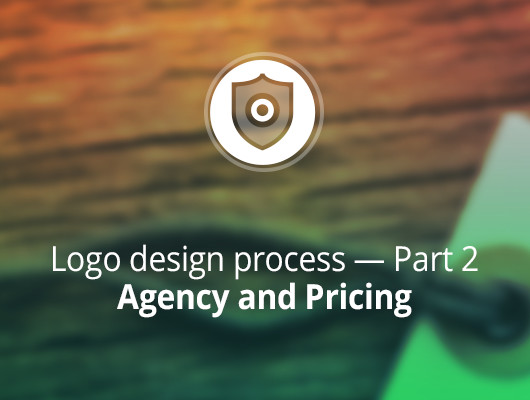What entrepreneurs should avoid when deciding on a company logo
Company owners often overlook the importance of a professionally logo design and the time and effort that it takes to create one. Because of that, and the necessity of keeping expenses down —Except that a company logo is not an expense. It is an investment— they sometimes resort to alternatives less than ideal that will have them trapped with a logo that is not effective, looks dated, or seems amateurish.
Nailing down the appropriate logo for your company is not an easy task. The path from —nothing— to final artwork is a long one. It is a path that starts with many years of learning and experimenting with design principles, colour theory, shapes, textures and forms. It continues with gathering the kind of knowledge that allows designers to transform abstract ideas into unique visual representations of a company’s essence. And in the end, whenever you commission a designer to work on your company’s logo, you are only witnessing the last moments of a process that started long time ago.
“An effective logo is simple, memorable, timeless, versatile and appropriate.”
It is important that your logo reflects the principles above, otherwise you will be missing out on the potential of a well-crafted identity. Avoid some of the most common mistakes when committing to a logo design by following this friendly advice:
Don’t do it yourself
Although it is extremely important that you are part of the process of designing your logo —no one knows your company better than you— you are not a designer. Only someone with the proper expertise will be able to capture, in a simple graphical way, the substance of your company.
Be there to supply all the needed information about your business and make sure to point the designer on the right direction when it comes to understanding the values, products and services of your company. But leave the actual design work to a professional.
Avoid thinking of your logo as a piece of art
Though they are related in some ways, art and design are two different things. Art is not necessarily meant to encourage an action from the public. It is subject to interpretation and it’s mostly a means to an artist’s self-expression. Art is about sending a different message to everyone and letting them come up with their own meaning.
On the other hand, design is all about purpose and motivation to do something specifically. It’s about making sure that your message reaches your target in the way you want it. When you want to associate a specific concept to the image of your company, you are thinking in terms of design, not art.
Don’t post your offer on sites where several designers compete with each other and only the chosen designer gets payed
The above is called “Spec work”. It is a terrible practice and a growing concern of the design community. It undermines the designer’s work, it’s unethical and it results on the detriment of our profession. It basically consists on having any type of creative work submitted by designers without having secured the equitable fees, often as part of a contest, skill test, or some sort of entry exam.
But, why is that wrong?
Besides giving the impression that design doesn’t hold much value —since inexperienced designers are willing to do it in exchange for the promise of possible payment— Spec work also leads to low quality of work, which in the long run will cost you more that what it saves you, in terms of branding, lost revenue and other factors.
Stay clear of design trends
Don’t approve a design with some sort of trendy element that you see being used a lot at the moment. Trends come and go, sometimes they even turn into clichés that will make your logo look amateurish. Ultimately, design trends put a time stamp on your logo.
Don’t have your logo literally show what your company does
Your logo’s main purpose is to instantly provide with a way to identify your company and convey the right message to your public, but that doesn’t mean that it has to tell everything about your company.
A logo should be a suggestion, a hint of an important characteristic of your product or service, not a full out illustration of what your product is or what your company is all about. A logo working together with your company name makes your brand unique and recognizable. Don’t diminish its power by trying to tell too much at once.
Don’t resort to a ready-made logo
Your logo needs to reflect the personality and values of your company. Getting a stock logo is getting a design that was made without thinking what’s important about of your company. It ends up being way too generic and lacking personality. Think about it. People making these type of logos need to be able appeal to the largest possible amount of businesses if they want to make a sell. The designs are superficial and easily get lost among other logos.
Your logo is at the core of your company’s brand strategy. Most of the interactions between your company and clients include your logo. If you want your products and services to be taken seriously, it is important that your logo is original, appropriate and professional.




